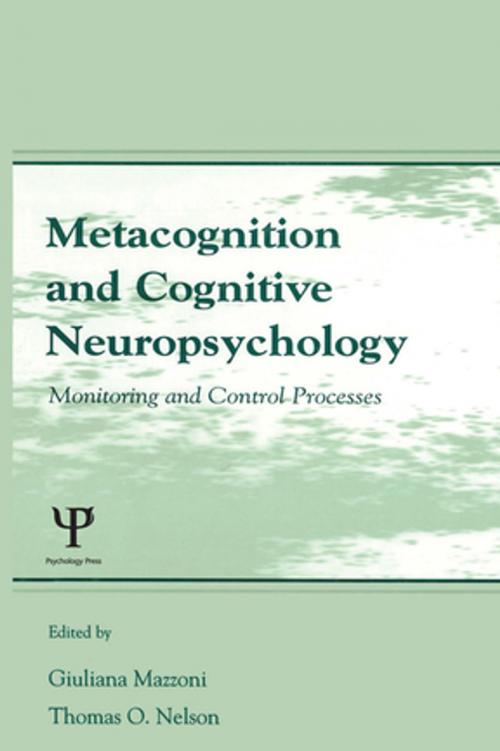Metacognition and Cognitive Neuropsychology
Monitoring and Control Processes
Nonfiction, Health & Well Being, Psychology, Neuropsychology| Author: | ISBN: | 9781317778424 | |
| Publisher: | Taylor and Francis | Publication: | May 12, 2014 |
| Imprint: | Psychology Press | Language: | English |
| Author: | |
| ISBN: | 9781317778424 |
| Publisher: | Taylor and Francis |
| Publication: | May 12, 2014 |
| Imprint: | Psychology Press |
| Language: | English |
Control processes are those mental functions that allow us to initiate, monitor, and prioritize mental activities. They are crucial to normal mental functioning. A better understanding of the nature of control processes and their deficits is important for clinical work and for an adequate theory of consciousness.
Previously, control processes have been examined within the frameworks of two parallel but independent paradigms: those of cognitive psychology and of neuropsychology. Cognitive psychologists have stressed the theoretical and empirical nature of normal unimpaired control processes; neuropsychologists have focused on the relationships between damage to specific functional areas of the brain and deficits in specific control processes. Both have contributed extensively to our understanding of control processes. However, they have tended to operate independently, with little if any cross-talk between disciplines, despite the potential benefits such dialogue is likely to generate.
This book represents the first attempt to synthesize cognitive and neuropsychological perspectives on control processes. It contains state-of-the-art reports on various aspects of control processes by experts from both disciplines.
Control processes are those mental functions that allow us to initiate, monitor, and prioritize mental activities. They are crucial to normal mental functioning. A better understanding of the nature of control processes and their deficits is important for clinical work and for an adequate theory of consciousness.
Previously, control processes have been examined within the frameworks of two parallel but independent paradigms: those of cognitive psychology and of neuropsychology. Cognitive psychologists have stressed the theoretical and empirical nature of normal unimpaired control processes; neuropsychologists have focused on the relationships between damage to specific functional areas of the brain and deficits in specific control processes. Both have contributed extensively to our understanding of control processes. However, they have tended to operate independently, with little if any cross-talk between disciplines, despite the potential benefits such dialogue is likely to generate.
This book represents the first attempt to synthesize cognitive and neuropsychological perspectives on control processes. It contains state-of-the-art reports on various aspects of control processes by experts from both disciplines.















